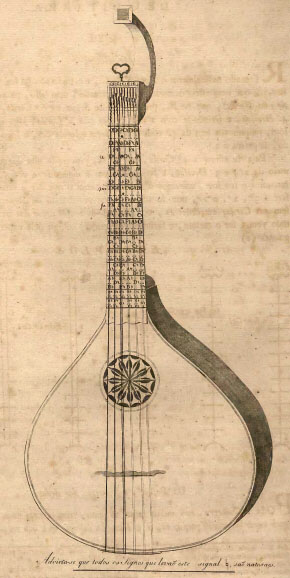|
Ruth Garcês
Ruth Garcês (1934–2006) was a Portuguese lawyer, magistrate and judge. She was the first female magistrate and the first female judge in Portugal. She founded the Portuguese Association of Women Judges. Born in Lourenço Marques in Mozambique in 1934, Garcês (also written as Garcez and Garcêz) graduated in Law from the University of Coimbra in 1956. After completing her studies, she returned to Mozambique, practicing there for two decades. After the Independence of Mozambique in 1975 she settled permanently in Portugal and, in 1977, began to work as a magistrate after a competitive exam that, prior to the Carnation Revolution in 1974, had only been open to men. In 1993, she was made a judge at the Lisbon Court of Appeal. A Fado Fado (; "destiny, fate") is a music genre that can be traced to the 1820s in Lisbon, Portugal, but probably has much earlier origins. Fado historian and scholar Rui Vieira Nery states that "the only reliable information on the history of fado was ... [...More Info...] [...Related Items...] OR: [Wikipedia] [Google] [Baidu] |
Portuguese Mozambique
Portuguese Mozambique ( pt, Moçambique) or Portuguese East Africa (''África Oriental Portuguesa'') were the common terms by which Mozambique was designated during the period in which it was a Portuguese Empire, Portuguese colony. Portuguese Mozambique originally constituted a string of Portuguese possessions along the south-east African coast, and later became a unified colony, which now forms the Republic of Mozambique. Portuguese trading settlements—and later, colonies—were formed along the coast and into the Zambezi basin from 1498 when Vasco da Gama first reached the Mozambican coast. Lourenço Marques (explorer), Lourenço Marques explored the area that is now Maputo Bay in 1544. The Portuguese increased efforts for occupying the interior of the colony after the Scramble for Africa, and secured political control over most of its territory in 1918, facing the resistance of Africans during the process. Some territories in Mozambique were handed over in the late 19th cent ... [...More Info...] [...Related Items...] OR: [Wikipedia] [Google] [Baidu] |
Order Of Liberty
The Order of Liberty, or the Order of Freedom ( pt, Ordem da Liberdade), is a Portuguese honorific civil order that distinguishes relevant services to the cause of democracy and freedom, in the defense of the values of civilization and human dignity. The order was created in 1976, after the Carnation Revolution of 1974 in which the corporatist authoritarian '' Estado Novo'' regime of António de Oliveira Salazar and Marcello Caetano was deposed. The Grand Collar can also be given by the President of Portugal to former Heads of State and others whose deeds are of an extraordinary nature and particular relevance to Portugal, making them worthy of such a distinction. This can include political acts, physical acts of defense for Portugal, or the good representation of Portugal in other countries. Grades The order includes six classes; in decreasing order of seniority, these are: * Grand Collar (''Grande-Colar'' – GColL) * Grand Cross (''Grã-Cruz'' – GCL) * Grand Officer ... [...More Info...] [...Related Items...] OR: [Wikipedia] [Google] [Baidu] |
People From Leiria District
A person ( : people) is a being that has certain capacities or attributes such as reason, morality, consciousness or self-consciousness, and being a part of a culturally established form of social relations such as kinship, ownership of property, or legal responsibility. The defining features of personhood and, consequently, what makes a person count as a person, differ widely among cultures and contexts. In addition to the question of personhood, of what makes a being count as a person to begin with, there are further questions about personal identity and self: both about what makes any particular person that particular person instead of another, and about what makes a person at one time the same person as they were or will be at another time despite any intervening changes. The plural form "people" is often used to refer to an entire nation or ethnic group (as in "a people"), and this was the original meaning of the word; it subsequently acquired its use as a plural form of per ... [...More Info...] [...Related Items...] OR: [Wikipedia] [Google] [Baidu] |
Portuguese Women Lawyers
Portuguese may refer to: * anything of, from, or related to the country and nation of Portugal ** Portuguese cuisine, traditional foods ** Portuguese language, a Romance language *** Portuguese dialects, variants of the Portuguese language ** Portuguese man o' war, a dangerous marine cnidarian that resembles an 18th-century armed sailing ship ** Portuguese people, an ethnic group See also * * ''Sonnets from the Portuguese ''Sonnets from the Portuguese'', written ca. 1845–1846 and published first in 1850, is a collection of 44 love sonnets written by Elizabeth Barrett Browning. The collection was acclaimed and popular during the poet's lifetime and it remain ...'' * " A Portuguesa", the national anthem of Portugal * Lusofonia * Lusitania * {{disambiguation Language and nationality disambiguation pages ... [...More Info...] [...Related Items...] OR: [Wikipedia] [Google] [Baidu] |
2005 Deaths
This is a list of deaths of notable people, organised by year. New deaths articles are added to their respective month (e.g., Deaths in ) and then linked here. 2022 2021 2020 2019 2018 2017 2016 2015 2014 2013 2012 2011 2010 2009 2008 2007 2006 2005 2004 2003 2002 2001 2000 1999 1998 1997 1996 1995 1994 1993 1992 1991 1990 1989 1988 1987 See also * Lists of deaths by day The following pages, corresponding to the Gregorian calendar, list the historical events, births, deaths, and holidays and observances of the specified day of the year: Footnotes See also * Leap year * List of calendars * List of non-standard ... * Deaths by year {{DEFAULTSORT:deaths by year ... [...More Info...] [...Related Items...] OR: [Wikipedia] [Google] [Baidu] |
1934 Births
Events January–February * January 1 – The International Telecommunication Union, a specialist agency of the League of Nations, is established. * January 15 – The 8.0 Nepal–Bihar earthquake strikes Nepal and Bihar with a maximum Mercalli intensity of XI (''Extreme''), killing an estimated 6,000–10,700 people. * January 26 – A 10-year German–Polish declaration of non-aggression is signed by Nazi Germany and the Second Polish Republic. * January 30 ** In Nazi Germany, the political power of federal states such as Prussia is substantially abolished, by the "Law on the Reconstruction of the Reich" (''Gesetz über den Neuaufbau des Reiches''). ** Franklin D. Roosevelt, President of the United States, signs the Gold Reserve Act: all gold held in the Federal Reserve is to be surrendered to the United States Department of the Treasury; immediately following, the President raises the statutory gold price from US$20.67 per ounce to $35. * February 6 – F ... [...More Info...] [...Related Items...] OR: [Wikipedia] [Google] [Baidu] |
Jorge Sampaio
Jorge Fernando Branco de Sampaio (; 18 September 1939 – 10 September 2021) was a Portuguese lawyer and politician who was the 18th president of Portugal from 1996 to 2006. A member of the Socialist Party, a party which he led between 1989 and 1992, he was the mayor of Lisbon from 1990 to 1995 and High-Representative for the Alliance of Civilizations between 2007 and 2013. He was an opponent to the dictatorship of Estado Novo, who participated in the student crisis in the 1960s and was a lawyer for political prisoners. When he was President, he had an important role in the 1999 East Timorese crisis and under his presidency, Portugal relinquished its last territory in Asia, Macau, which was handed over to China. Early life and political career Sampaio was born in Lisbon on 18 September 1939 in an upper/middle-class family. The Sampaio family lived abroad in the United States and the United Kingdom for some years, due to the professional activity of his father Arnaldo de Sampa ... [...More Info...] [...Related Items...] OR: [Wikipedia] [Google] [Baidu] |
Supreme Court Of Justice (Portugal)
The Supreme Court of Justice ( pt, Supremo Tribunal de Justiça, , STJ) is the highest court of law in Portugal without prejudice to the jurisdiction of the Constitutional Court. The judges of the STJ are referred to as "counselors" (''conselheiros''). Its president is elected by and from among the judges of the court. The STJ is installed in the buildings of the northern wing of the ''Terreiro do Paço'' square in Lisbon. Competences The competences of the Supreme Court of Justice are the following: *To try the President of Portugal, the President of the Assembly of the Republic and the Prime Minister of Portugal for crimes committed during the exercise of their office; *To harmonize rulings by setting uniform jurisprudence; *To hear appeals in matters of law; *To try crimes committed by the members of the Supreme Court, of the Courts of Appeal or Public Prosecutors. History The Supreme Court of Justice was created in 1833, in the scope of the separation of the judicial power ... [...More Info...] [...Related Items...] OR: [Wikipedia] [Google] [Baidu] |
Porto De Mós
Porto de Mós () is a town and a municipality of Estremadura province in Leiria District. It is in the Centro Region and the Pinhal Litoral subregion. The population in 2011 was 24,342, in an area of 261.83 km². There were archeologic findings which link São Jorge, in the parish of Calvaria de Cima, as the exact place where the Battle of Aljubarrota was fought, crucial for maintaining the independence of Portugal in 1385. Currently, there is an interpretation center on the spot (Centre of Interpretation of the Battle of Aljubarrota) which helps visitors explore the battlefield and learn about the most important facts of this battle. In this municipality, you can also find several caves carved in the mountains, the most important being Moinhos Velhos Cave, also known as Mira de Aire Cave. A portion of the Serras de Aire e Candeeiros Natural Park is also located in Porto de Mós municipality. St. John Parishes Administratively, the municipality is divided into 10 civil ... [...More Info...] [...Related Items...] OR: [Wikipedia] [Google] [Baidu] |
Fado
Fado (; "destiny, fate") is a music genre that can be traced to the 1820s in Lisbon, Portugal, but probably has much earlier origins. Fado historian and scholar Rui Vieira Nery states that "the only reliable information on the history of fado was orally transmitted and goes back to the 1820s and 1830s at best. But even that information was frequently modified within the generational transmission process that made it reach us today." Although the origins are difficult to trace, today fado is commonly regarded as simply a form of song which can be about anything, but must follow a certain traditional structure. In popular belief, fado is a form of music characterized by mournful tunes and lyrics, often about the sea or the life of the poor, and infused with a sentiment of resignation, fate and melancholy. This is loosely captured by the Portuguese word ''saudade'', or longing, symbolizing a feeling of loss (a permanent, irreparable loss and its consequent lifelong damage). This is s ... [...More Info...] [...Related Items...] OR: [Wikipedia] [Google] [Baidu] |

_1938.jpg)


